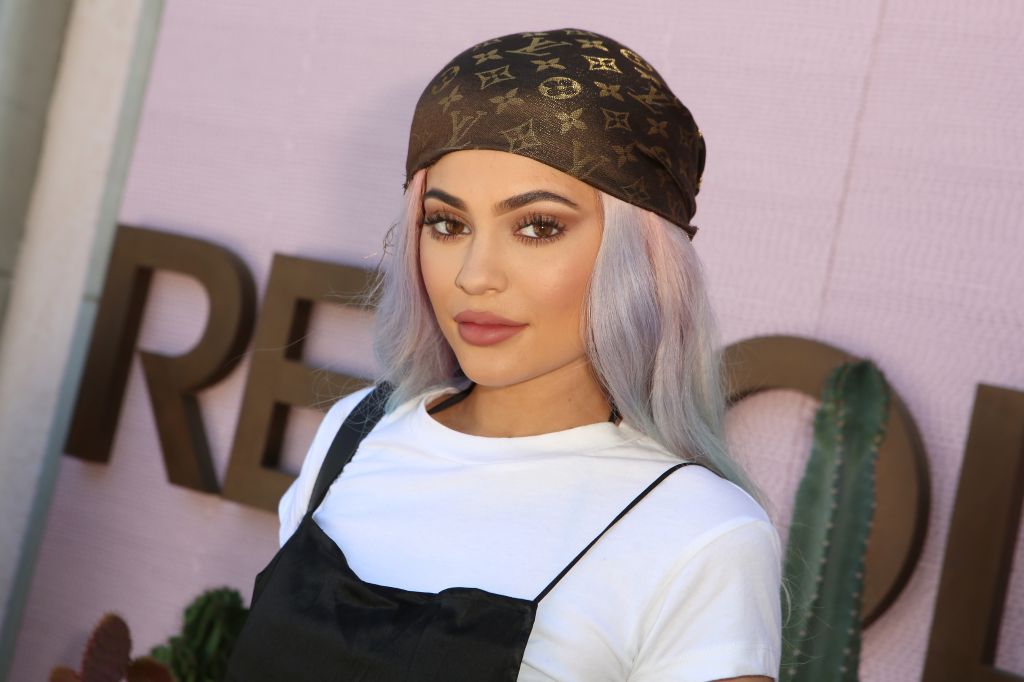A Brief Look at the Evolution of "Culture Vulture"
BLACKIPEDIA: A Brief Look at the Evolution of “Culture Vulture”

Source: Ari Perilstein / Getty
Ahhh, “culture vulture.” A term we’ve all come to know—for better or for worse—as the descriptor of one who appropriates the art, creativity and style of others, most often for their own benefit (and, at worst, in a way that serves no value to the originators of whatever cultural product, tradition or practice was lifted.)
You’ve probably heard it thrown around social media more than once, say regarding the latest of Kylie Jenner’s questionable fashion choices (lol, she “woke up like disss“) or Drake’s obsession with using phony-ass patois—but where did “culture vulture” even originate?
While the rise of its most current iteration is difficult to identify, Urban Dictionary’s earliest definition of the term seems to have appeared in 2003.
“A scavenger, circling the media, looking for scraps of originality to add to their conceit,” it reads. The top definition, posted in 2006, is closer to what we know the term to mean today: “Someone who steals traits, language and/or fashion from another ethnic or social group in order to create their own identity.” Used in a sentence (per UD): “Todd just bought himself a Fubu track suit and changed his name to Tyrone. He is such a culture vulture!”“A scavenger, circling the media, looking for scraps of originality to add to their conceit”
A quick search on Dictionary.com will also show you that “culture vulture” first popped up around the 1940s as “an individual with a consuming or excessive interest in the arts.” But when we attempted an even deeper dive, we were left us scratching our heads: all we were able to find were message boards where folks debated the answers to the questions we already had.
Enter Taryn Myers—a PhD student in Communication, Culture & Media Studies at Howard University— and Mark Anthony Neal—Professor of African American Studies and founding director of the Center for Arts, Digital Culture and Entrepreneurship (CADCE) at Duke University. Myers, who says she first saw the term “culture vulture” on Twitter, explained via email: “If you look at the scholarly literature, which is always light years behind pop culture, the term culture vulture isn’t really used, at least not in this way.” Instead, Myers says, you’re more likely to hear academics refer to more scholarly terms such as “linguistic minstrelsy” and “proletarian blackface,” dating back to “the good ole’ days of Stepin Fetchit.”
Neal, who notes “culture vulture” as a “relatively recent” term, spoke in the same vein. “In the United States,” he explained, “the most resonant example of the idea of being a ‘culture vulture’ can be traced to the 19th Century, which a group of white Minstrels—traveling singers or bards— began to perform in Blackface, caricature enslaved Africans, and creating the most popular form of entertainment in the country, well into the 20th century.”
Given their insight, we decided to look to Myers and Neal for a little more wisdom on the world of the culture vulture. Dig in:
Do Culture Vultures Shape Culture?
Mark Anthony Neal: “Culture vultures do shape culture, because the privilege of whiteness, means that culture vultures have more access to entertainment and cultural platforms, as members of the so-called dominant culture. The success of the Amos & Andy radio program in the 1930s is an example. Most who watched the television version of the show in the 1950s with Black actors, didn’t know that it was white actors, sounding Black, who were featured on the radio program. Both versions of the show were popular among Black and white audiences, though the NAACP successfully campaigned to have the television show cancelled.”
Taryn Myers: “Culture vultures bring underground cultural symbols to the main stage. Sometimes, this isn’t a bad thing.”
Can Black And Brown Folks Be Culture Vultures, Too?
TM: “Cultural appropriation does come from a place of privilege. For example, I’ve heard Black gay men admonish Black women for using the colorful language which originated within the gay culture. Both Black women and Black gay men belong to marginalized groups, so the question is: is this type of cultural appropriation as harmful as Taylor Swift dressing up as a B-Boy (complete with braids) for a Vogue magazine shoot?
Academic literature absolutely focuses on the appropriation of minority cultures by whites for the obvious imbalance of power that the situation presents, but I’ve read studies that examined cultural theft from the perspective of Black and brown people. [Kareem Khubchandani, author of “Terrifying Performances: Black-Brown-Queer Borrowings” in Loins of Punjab Presents] surmised that sometimes cross-cultural theft (from one marginalized group to another) can actually be used to critique the hegemonic social structure of America. Personally, I am not sure about that, but I did appreciate the author’s perspective.”
Appropriation Vs. Homage: What’s The Difference?
TM: “That is the million dollar question…at what point does cultural appreciation become cultural appropriation? In my opinion, the line is drawn when the checkbooks come out. When someone like Taylor Swift or Justin Bieber or Justin Timberlake is able to profit from performing Blackness while Black people are stigmatized for the same action…I think that’s the line.”
MAN: “It comes down to whether a non-Black is contributing to Black culture, as opposed to simply exploiting it. Someone like the late Teena Marie or songwriter Rod Temperton (who penned chart-topping songs for Michael Jackson and George Benson) are folks who were contributing to the culture. In the end, I’m not as concerned about the other folks, because they often traffic in the lowest common denominator of Black culture. Why should I worry about Miley Cyrus if her cultural imprint is never gonna overshadow the legacy of Diana Ross, Janet Jackson or Beyoncé?”
What are your thoughts? Tweet us at @CASSIUSLife_ and let us know.












